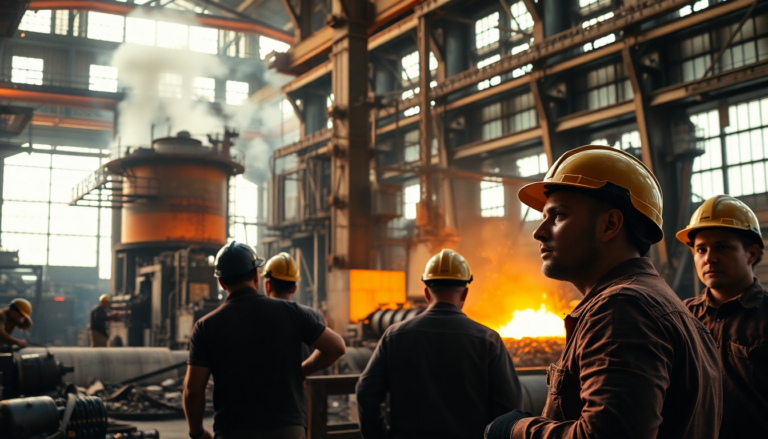Argomenti trattati
In a bold move that has sent ripples through the American manufacturing sector, President Donald Trump recently announced a significant increase in tariffs on imported steel and aluminum. Speaking to a crowd of steelworkers at the U.S. Steel’s Mon Valley Works in Pennsylvania, he declared that the tariff on steel imports would be doubled to a staggering 50%. This decision, he claims, aims to protect domestic jobs while reinvigorating the steel industry, a sector that has faced tremendous challenges in recent years.
The implications of increased tariffs
Doubling the tariffs on steel imports inevitably raises questions about the potential consequences for various industries relying on steel, including automotive manufacturing and construction. As Trump emphasized, this move is intended to ensure that American steel remains competitive against foreign imports. However, critics warn that such steep tariffs could lead to increased prices for consumers, affecting everything from car manufacturing to housing costs.
Steel prices have already surged by over 16% since Trump took office, and the new tariffs could exacerbate this trend. According to the U.S. Commerce Department, the cost of steel in America is significantly higher than in other countries, such as China and Europe. While the intention is to bolster domestic production, there’s a fine line between protectionism and market distortion that could lead to unintended economic fallout.
Nippon Steel’s investment and its complexities
Amidst these tariff changes, Trump also discussed a deal involving Japan’s Nippon Steel, which is set to invest in U.S. Steel. Initially, Trump had vowed to block Nippon’s bid to acquire Pittsburgh-based U.S. Steel. However, he seemed to have changed his stance, describing the investment as a “blockbuster agreement” that would keep the company American-owned, albeit with a foreign investor involved.
The details surrounding this agreement remain murky. While Nippon Steel has pledged significant capital to upgrade U.S. Steel facilities, the intricacies of ownership and control are still being worked out. Steelworkers’ unions have expressed skepticism about the merger, concerned about its implications for national security and job stability in their communities.
Reactions from the steelworkers
The response from steelworkers has been mixed. While some view the investment from Nippon Steel as a much-needed lifeline for aging plants, others fear the long-term consequences of foreign involvement in a historically American industry. David McCall, president of the United Steelworkers union, voiced concerns that this merger could compromise their jobs and the integrity of the industry.
Clifford Hammonds, a line feeder at the plant, shared his perspective, emphasizing the necessity of investment to modernize outdated equipment and processes. “This place is old; it’s falling apart. We need some type of investment to fix the machines that we’ve got working,” he stated, highlighting the urgency of the situation as they strive to maintain production levels.
Political ramifications and future outlook
As the political landscape evolves, Trump faces pressure to demonstrate tangible benefits for American workers from these policies. The fate of U.S. Steel is not just an economic issue; it’s also a pivotal political point as he gears up for future elections. The stakes are particularly high in swing states like Pennsylvania, where manufacturing jobs remain a cornerstone of local economies.
While Trump remains adamant that the deal with Nippon Steel will preserve American control over U.S. Steel, the complexities of foreign investment in critical industries complicate the narrative. As voters look for signs of revitalization in manufacturing, the effectiveness of these tariffs and investments will be closely scrutinized. Will they genuinely protect American jobs, or will they create a facade of security in an increasingly globalized economy?
Final thoughts
As Trump closed his remarks, he reiterated a vision of self-sufficiency for American industries. “We are once again going to put Pennsylvania steel into the backbone of America like never before,” he proclaimed. Whether this vision materializes remains to be seen, but the interplay between tariffs, foreign investment, and domestic production will undoubtedly shape the future of American manufacturing. In the coming months, as these policies take effect, the real test will be whether they can deliver on the promises made to the American workforce or if they will serve as another chapter in the ongoing saga of U.S. trade policy.

